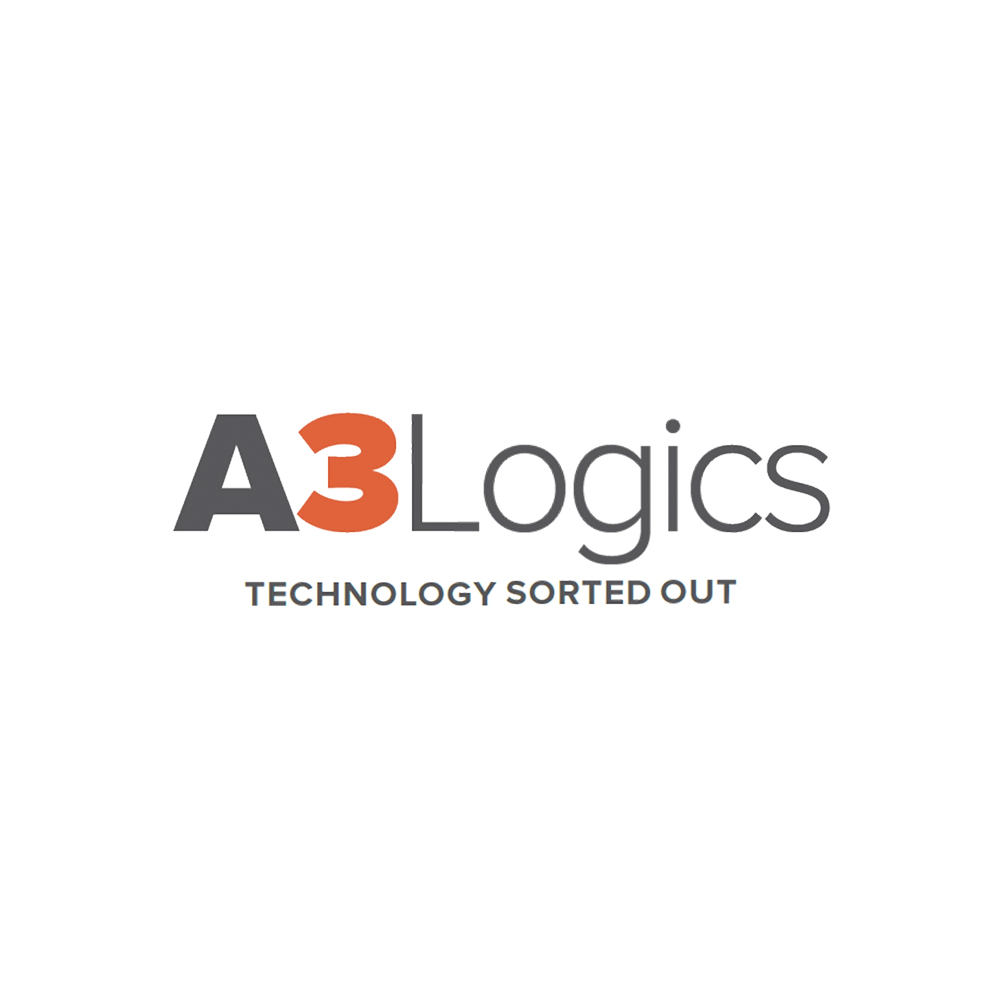Search for Salesforce development services online, and you will get many options consisting of Salesforce consultants and companies. Although there has been significant growth in the number of Salesforce service providers in the past few years, selecting the right one has become more challenging and complicated. Whether you plan to implement salesforce for the first time or need to optimize an existing system, finding a trusted partner is tough to hoe. Having worked as a leading Salesforce Development Company for a long time, we know all clients’ queries and doubts. Therefore, we have compiled a list of all the questions about Salesforce services. We assure you that you will get the answers to your queries here, and the blog will help you select the right salesforce consultant for your company. Have a look:
Ques 1: What tools do you use to build custom Salesforce applications?
Salesforce offers various point-and-click tools to configure and customize apps under the Salesforce platform. They are generally called declarative tools and are potent and effective, designed exclusively to enable your apps to run as fast as possible. No matter what industry you are in or what service you provide, we can help you store all your information on a secure platform. We offer Salesforce App Development service for integrated, native, and stand-alone apps that can be released on different app stores once the core components are ready. We opt for the platform development tools depending on the application type and target audience you select.
Tools that you use for building custom Salesforce applications are –
Lightning App Builder: This makes simple native Salesforce applications with custom pages through the drag-and-drop builder. It provides a Lightning experience, ensuring the users what they seek in one app. Lightning App Builder is a one-stop destination for configuring, customizing, and creating apps. It covers everything from storing, manipulating, securing data to automating processes, managing users, and creating an interface.
SalesforceDX is a modern-cycle management tool for coding and works on the “build together and deliver continuously” approach. It is designed for building code-heavy Salesforce applications. Its integrated and end-to-end lifecycle makes it apt for high-performance agile development.
Source: Salesforce Developers
Heroku: Heroku is an elegant, easy-to-use, and flexible platform that is designed for developing, monitoring, and delivering scalable Salesforce Applications. It is the fastest way to move from idea to URL. We prefer this tool as it offers the most straightforward path to market the apps. Also, it allows developers to focus on the core product, eliminating all the distractions, such as managing hardware or infrastructure.
Ques 2: How do you integrate a third-party system with salesforce?
Third-party integration ensures a smooth experience and engages users on the application. With robust tools and powerful APIs of Salesforce, we can integrate a third party into your existing system in the fastest time possible while modernizing your operations.
Direct API integration includes coding development. Our technical team, comprising Salesforce experts, implements and provides ongoing support. Considering the technicality involved in this phase, highly-qualified developers are involved in this approach, while a non-technical team handles middleware integration.
Middleware integration consists of licensing tools with connectors to various platforms, including Mulesoft, Heroku Connect, Jitterbit, Scribe, Cast Iron, Dell Boomi, Informatica, etc. It is easier and faster to develop considering the pre-built connectors. Also, it is convenient to make changes here as these tools are self-documenting.
Once the integration is complete, we begin testing and reviewing the system to fix bugs, update features, and message the data in a separate application.
Ques 3: How will salesforce help my business?
Salesforce is a leading Customer Relationship Management software that helps businesses to become more streamlined, effective, and organized. It enhances your relationship with your users and manages the sales pipeline. We have been offering Salesforce Consulting Services for years and have witnessed it evolve, delivering innovative and comprehensive solutions to all business needs. No wonder it has emerged as a game-changer tool, helping companies to focus on the right opportunities by collecting critical and significant data.
Here is how seeking Salesforce Consulting Service will help your business grow further:
- Accelerate productivity
- Higher lead conversion rates
- Enhanced productivity
- Efficient reporting
- Automated tasks
- Improved customer services
- Effective communication system
- Informed decisions
- Managed sales activity
- Increased customer satisfaction
- Greater efficiency for multiple teams
- Increased customer retention
Ques 4: What is the estimated cost to hire a salesforce developer?
Salesforce has become one of the most sought-after services in the past few years, and the one common question we come across is how much it costs for salesforce implementation. No one can give you one accurate answer, as numerous factors and features are considered to estimate the final amount. We have been in the business for years and can tell you that you must spend around $40 – $350 per month, depending on the services you seek.
The first factor is the functionalities and features that you opt for. It is followed by integration with all other cloud services. There are tons of additional apps in the AppExchange that you select. Customization and implementation are the following factors. Of course, the team involved in the Salesforce setup is also crucial as it involves highly proficient people. The overall cost can vary from $10,000 to well over $80,000 even.
Discover the Future of Business with Salesforce Services. Take the Leap into Success
Ques 5: How long does it take for Salesforce Implementation?
Like most, the time required for salesforce setup depends on business to business. While offering Salesforce Implementation Services, we consider various factors before estimating the total time required for the process. It involves installation, maintenance, upgradation, etc., which is different for each organization and sales team. Sales configuration will take a few days or, say, a month for less complicated projects. However, if we talk about complex organizations with a large number of employees, then it can take six months or even a year. Yes, it may sound like too much time, but cutting corners initially will only strain your budget in the future rather than help you in any way.
The factors involved in estimating the time are:
- Number of stakeholders
- How organized and clean your data is
- Size of the company
- Number of CRM users
- Several integrations need to be set up
- Whether your current data processes and naming conventions are in place, etc.
Ques 6: Which sales cloud edition is right for my business?
Salesforce is a massive world offering different editions and options. Understanding each is complex, and selecting the right one for your business is even more challenging. Hence we have an expert team of Salesforce consultants to guide you and recommend the relevant solution.
To give you a brief insight into it, we have explained four major Salesforce editions:
Salesforce Essentials: This is the first level of Salesforce offerings, a stripped-down version of salesforce with functionalities limited to small business needs. It is more sales and marketing oriented, allowing you to store, manage, and analyze data without flexibility. If you want a complete out-of-the-box CRM for your business that can be installed and dashed, then this is the right option. One thing to note is that it allows only five users to manage sales, opportunities, and customer cases.
Professional Edition: It enables unlimited users to manage the sales cycle with fully-featured functionality. However, it lacks the flexibility of advanced additions. There are actual sales and marketing features, and you can also take care of marketing campaigns, orders, contracts, etc. it is simple, with options like customization, administration, integration, etc.
Enterprise Edition: As the name suggests, Salesforce Enterprise is for complex businesses with large-scale operations and deployments. There is flexibility, customization, and options for marketing, sales, and executives. This Sales Cloud edition automates business processes with a customized system with custom record types for your company. You can integrate it with any system using web service API and handle complex sales tasks.
Unlimited Edition: In this edition, you can access an entire Salesforce product without limitations: unlimited online training, 24*7 toll-free support, 100 admin services, and more. Our Salesforce service providers will help you customize the system with unlimited tabs and apps to fit your business requirements.
Ques 7: What are the core differences between Sales Cloud and Service Cloud?
Sales Cloud: This is Salesforce’s first product, designed to help the sales team accomplish their goals faster and wiser. It supports businesses in managing sales cycles by dealing with their contacts, leads, accounts, opportunities, deals, orders, quotes, etc., in one destination. It is a CRM that assists companies in keeping track of customers and their relationships without any hassle. Sales Cloud provides lead management, opportunity management, forecasting, product, and quoting functionality.
Service Cloud: This is another product of Salesforce Development that enhances customer services, cases, contacts, and solutions of the company. It is similar to the product at the top of salesforce’s core CRM cloud. It supports companies with their customer service department and contributes to retaining existing users. The functionalities include case management, entitlement management, knowledge bases, and Email2Case.
Which one you select depends on your business goals and your area of improvement.
Ques 8: What is the Salesforce Implementation process that you follow?
We have a well-defined process comprising various steps, each strategically designed to ensure successful implementation. Although this is our stringent and standardized process, it is flexible enough to adapt to your business needs and model.
So, here are the steps that we follow:
- Planning the Integration
- Establishing a timeline
- Defining the strategy and process
- Set metrics for success
- Determine the key players
- Thinking over risks
- Educate your team
- Prepare and transfer the data
- Set communication channel
- Define individual roles
- Roll it out in phases
- Build a working prototype
- Review and Assessment
- Final implementation
- Post-implementation Follow-up
Ques 9: What are the benefits of Lead management?
Lead management is the process of managing the leads equally and constantly. It tracks the leads successfully, starting from the initial interaction until the purchase and beyond.
The benefits that your business can reap include the following:
- Impactful lead nurturing
- Efficient communication with leads
- Customer engagement
- Improved response time
- More productivity due to automation
- Enhanced team coordination
- Real-time reporting
- Better lead tracking
- Filtered leads
Hire the Best Salesforec Consultants to Enhance Collaboration and Team Empowerment
Get in Touch with A3logics
Ques 10: What are the benefits of Opportunity Management?
Opportunity Management is a part of CRM software that enables the sales team to work smarter while generating leads, seeking opportunities, and closing sales. With opportunity management software, sales professionals can get an insight into a specific customer’s preferences and buying patterns.
- Its list of benefits includes:
- Enhanced sales productivity
- Real-time visibility & tracking
- Efficient management of accounts
- Improved win rates
- Optimized workflow
- Faster response time
- Better opportunity insights
- Better analysis of performance
- Easy access to crucial customer information
Ques 11: What is your experience with salesforce?
Understanding your consultant’s experience with salesforce is essential as this will give you an idea of their level of expertise with the platform. You can ask about their years of experience with salesforce, the types of projects they have worked on, and the industries they have worked in. It will help you gauge their understanding of salesforce and its capabilities. Additionally, asking about any certifications they have related to salesforce is vital.
Ques 12: Can you provide examples of similar projects you have worked on?
Ask for examples of similar projects they have worked on to ensure that the consultant you hire can deliver custom software development services that meet your specific needs. It will give you an idea of their experience in your industry and the projects they have delivered. Look for projects similar in scope, scale, and complexity to your project.
Ques 13: How do you approach project planning and management?
Effective project planning and management are essential to the success of any custom software development project. Ask your consultant about their approach to project planning and management, including their communication and collaboration methods, how they manage project timelines and budgets, and ensure quality assurance throughout the development process. It is essential to choose a consultant who has a clear and structured approach to project management and who can keep you informed and involved throughout the process.
Ques 14: What is your communication style, and how will you keep us informed throughout the project?
Effective communication is crucial to the success of any custom software application development project. You want to work with a Salesforce consultant who is transparent and responsive. Ask your consultant about their communication style and how they plan to keep you informed throughout the project. Will they be available for regular check-ins and progress reports? Do they provide detailed documentation and updates regularly? Will they be responsive to questions and concerns?
Ques 15: How do you ensure data security and privacy?
Data security and privacy are critical considerations for any custom software development project. You want to work with a Salesforce consultant who takes data security seriously and has a proven track record of protecting client data. Ask your consultant about their data security protocols and how they ensure client data is secure throughout development. Do they have policies in place to prevent data breaches or unauthorized access? Do they use encryption or other security measures to protect sensitive data?
Ques 16: What is your pricing structure, and what services are included?
Custom software development solutions can vary widely in terms of cost and scope. It is essential to understand your consultant’s pricing structure and what services are included in their fees. Ask your consultant about their pricing model and how they determine project costs. Do they charge hourly or by the project? What services are included in their fees, and are there any additional costs or fees you should be aware of? It is essential to understand pricing and services upfront to avoid any surprises or misunderstandings later in the project.
Ques 17: How do you handle unexpected issues or challenges during the project?
Unexpected issues and challenges can arise anytime when working on a Salesforce project. It is essential to ask your Salesforce consultant how they handle these situations. The top Salesforce integration services companies will have a transparent process for managing unexpected issues or challenges. They will be able to provide examples of how they have dealt with similar situations and have a team of experts equipped to troubleshoot and resolve problems quickly. Look for a Salesforce consultant with experience with Salesforce DevOps solutions, as they will be well-versed in managing unexpected issues through continuous integration and deployment.
Ques 18: Can you provide references from previous clients?
One of the best ways to assess a Salesforce consultant’s skills and experience is to speak with their previous clients. Ask your consultant for references from previous projects and take the time to speak with these clients about their experience working with the consultant. Ask about the consultant’s communication style, project management skills, and overall performance. The top Salesforce solution companies will have a track record of success and will be able to provide references from satisfied clients.
Ques 19: What certifications or credentials do you have related to salesforce?
When hiring a Salesforce consultant, it is essential to ensure they have the necessary certifications and credentials related to salesforce. Look for a Salesforce certified expert in Salesforce administration, development, and architecture. It will ensure they have the knowledge and expertise to deliver a high-quality Salesforce project. Additionally, if you are looking for a Salesforce e-commerce solution, look for a consultant with experience with Salesforce Commerce Cloud and relevant certifications in this area. You can ensure you work with a qualified and experienced Salesforce consultant by asking about certifications and credentials.
Ques 20: How do you stay current with new Salesforce updates and features?
Asking your Salesforce consultant how they stay current with new updates and features is crucial to ensure they are knowledgeable and up-to-date on the latest Salesforce developments. Top Salesforce solution companies prioritize staying current with new updates and features to provide their clients with the best possible service. Salesforce DevOps solutions require continuous learning and keeping up with the latest trends and technologies.
Consultants must be informed through training programs, webinars, and Salesforce events. The consultant should have a deep understanding of salesforce’s roadmap, which will help you better understand the direction in which salesforce is heading. Salesforce eCommerce solutions require knowledge of the latest updates and features to build and maintain a successful online store. The consultant should be well-versed in the latest eCommerce trends and techniques and have experience integrating salesforce with eCommerce platforms.
Do you have more questions?
If you still doubt Salesforce Implementation and integration, do not hesitate to ask us anytime. Our Salesforce professionals are always happy to help you and efficiently answer your queries. So, connect with us now and let us know how we can help you.
Streamline Your Operations with Salesforce Development Services
Hire A3logics as Your Salesforce Consultant
FAQs About Salesforce Development consultants
What should I ask a Salesforce consultant?
If you’re considering working with a Salesforce consultant, you should ask several essential questions to ensure they fit your needs. Here are some questions to consider:
- What experience do you have working with salesforce?
- Have you worked with clients in my industry or with similar needs?
- What services do you offer, and what is included in each package?
- Can you provide references or case studies of past projects you have worked on?
- How do you approach problem-solving and project management?
What should a Salesforce consultant know?
A Salesforce consultant should thoroughly understand the platform, its features, and its capabilities. They should also have experience implementing Salesforce solutions for various industries and business processes. Some critical areas of knowledge include:
- Salesforce configuration and customization: Consultants should be well-versed in salesforce’s declarative capabilities, including configuring fields, page layouts, workflows, and approval processes.
- Salesforce integrations: Understanding how to integrate salesforce with other systems and platforms is critical, whether using salesforce’s pre-built connectors or developing custom integrations.
- Salesforce data management: Consultants should know how to manage data in salesforce, including importing, exporting, and cleaning data, as well as understanding data security and privacy.
- Salesforce reporting and analytics: Knowledge of Salesforce’s reporting and analytics capabilities, including creating dashboards and reports, is essential for consultants to provide meaningful insights to their clients.
- Salesforce certifications: One or more Salesforce certifications demonstrate a consultant’s knowledge and expertise in specific platform areas.
Overall, a successful Salesforce consultant should be able to understand a client’s business needs and develop and implement solutions that leverage the power of the Salesforce platform.
Which are the four pillars of salesforce’s success?
The four pillars of salesforce’s success are a framework it uses to guide its business strategy and operations. These pillars are:
- Customer Success: Salesforce believes customer success is essential to its business. To achieve this, the company focuses on building a solid relationship with its customers by understanding their needs, providing exceptional customer service, and helping them achieve their goals.
- Innovation: Salesforce is committed to constantly innovating its products and services to stay ahead of the competition. It includes investing in research and development to create new technologies and features that enhance the customer experience.
- Equality: Salesforce is dedicated to promoting equality and creating a diverse and inclusive workplace. The company has implemented various initiatives to support these values, such as pay equity, employee resource groups, and community outreach programs.
- Giving Back: Salesforce is committed to positively impacting society through its corporate social responsibility initiatives. It includes donating time, money, and resources to charitable causes and encouraging its employees to volunteer and get involved in their communities.
Does a Salesforce consultant need coding?
No, Salesforce consultants do not necessarily need to have coding skills. While a background in programming can certainly be helpful, it is not a requirement for success as a Salesforce consultant. The role of a Salesforce consultant is to help businesses maximize the value they get from the Salesforce platform. It involves understanding the client’s needs, configuring the platform to meet them, and providing guidance on best practices for using it effectively.
While some aspects of Salesforce configuration may involve coding, such as building custom fields or creating workflows, it is often possible to achieve the desired results through point-and-click tools and configurations. A basic understanding of coding concepts such as data types, variables, and control structures can help troubleshoot and work with more complex configurations. Additionally, a consultant with coding skills can offer more advanced customization options for clients who require it.

An IT company delivering the best in a constantly changing world. Our passion is to create feature-rich, engaging projects designed to your specifications in collaboration with our team of expert professionals who make the journey of developing your projects exciting and fulfilling. Get a 30 Min free consultation to convert your dream project into reality.












![10 Top IoT Security Solution Providers in USA [2024]](https://www.a3logics.com/blog/wp-content/uploads/2024/04/New-Project-4.webp)